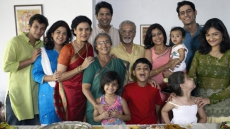Relationship violence affects all genders, sexual orientations, income levels, ages (infants, children, adults, and seniors), ethnic or cultural backgrounds, and functional abilities (including people with physical or mental disabilities). If you have ever known someone who has been in an abusive relationship, we don’t need to convince you of the devastating effects this can have on individuals, entire families, and communities. When the person causing harm is someone the victim knows and maybe even loves, violence and abuse can cause feelings of shame, confusion, and helplessness for the victim; and take on new levels of danger.
When the victim is a child, they can be unaware that the violence they are experiencing is wrong and end up in abusive relationships as an adult because they learned as a child that they did not deserve to be safe. Children who experience abuse and children who witness abuse are at risk of greater mental and physical health issues as adults. Abuse as a child is linked to increased risk of suicide. This is true for all kinds of abuse; physical abuse, sexual abuse, emotional abuse, financial abuse, and spiritual abuse. Signs of abuse can range from obvious behaviours like beating or sexual assault, to constant insults, controlling the victim’s behaviour, preventing them from practicing their religion, and preventing them from working or forcing them to work and then taking their hard-earned money. Abusers can spend years isolating their victim from all of their friends, family, and other social supports; reducing the victim’s self-esteem, and making them feel like the abuse is their fault.
In Canada, about 1 in 3 adults report experiencing some kind of abuse as children; 1 in 3 women and 1 in 6 men will experience relationship violence in their adult lives; and 1 woman is killed by an intimate partner every 6 days. Some estimates put these statistics at an even higher rate. The bottom line is: It is all but guaranteed that every single one of us knows multiple people who have experienced relationship violence in their lives.
This all sounds very depressing, but there is hope! The first thing you need to know is that help exists, no matter what the situation. In British Columbia, the Ministry of Public Safety and Solicitor General funds many support programs for survivors of violence including the VictimLinkBC helpline and Community-Based Victim Service programs. This means a victim of violence does not have to go to the hospital or call the police in order to get help. This is really important because we know many victims are hesitant or afraid to report to police. If you are experiencing any kind of abuse, please know that you are not alone and the abuse is never your fault! You can call VictimLinkBC for support at 1-800-563-0808. This service is available 24 hours a day, 7 days a week in over 150 languages and serves the whole province. VictimLinkBC can help you if you just want to talk, connect to services in your community, and strategize on how to stay safe.

According to Statistics Canada (2018), only 20% of women who experienced a physical assault accessed victim supports like helplines, crisis centres, social workers, counsellors, and psychologists; and only 7% of men who experienced a physical assault accessed these services. This means that survivors of violence are not only hesitant to report to police, but are also hesitant to access services. There are millions of people in Canada who have dealt with serious assaults and abuse without any professional support.

You can help change this! The Network to Eliminate Violence in Relationships (NEVR) is conducting free Violence Intervention Program (VIP) training on how to recognize abuse, safely intervene, and connect survivors with resources. You can help keep your loved ones and community members safe. NEVR ishappy to train organizations that provide services for people (i.e. hairdressers, librarians, servers, teachers, coaches, nurses, media organizations, etc.), and also any member of the community that would like to champion anti-violence. Participants will also have the opportunity to practice the skills learned in class by applying them to imagined scenarios. By the end of the 3-hour training, participants will feel more confident to support a victim through all of the challenges that they face.
In the VIP training, participants will learn: common signs of each of the forms of abuse, what to say and what never to say to a victim (hint: never tell the victim the abuse is their fault and do not tell them they have to leave the relationship), how to help them strategize around safety and create a safety plan, and what services are available to help them if/when they decide they are ready to reach out. Do you know what a victim can do to stay safe after they’ve left the relationship? If they choose to stay in the relationship? Where can they get financial support if they don’t have a job and need to leave? Where to find help if the abuser is their immigration sponsor? Is it better for the children if the parents stay together? If the abuse was a long time ago can you still get help? What happens if they report to the police? Will they have to testify in court? What if the victim doesn’t speak English? How can they keep their kids safe? There are a lot of questions, and survivors of violence don’t deserve to be alone to find all of the answers.

If you would like to learn the answers to these questions and more, please email NEVR@kpu.ca or call 604-599-2267. We know survivors of violence can be hesitant to reach out to services or report to police. This is why every one of us needs to step up to support survivors of violence in their time of need. Everyone deserves to be safe. You can make a difference, take the free VIP training!



